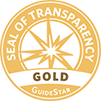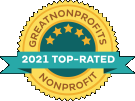53% of people in South Asia are illiterate.1
READ Centers provide holistic education for villagers of all ages and backgrounds. Literacy is often the first step, opening doors to trainings in livelihoods and technology. A majority of people in South Asia live in rural areas that lack access to educational resources. So every READ Center has a library, computer room, training hall, and AV section. The Centers also have designated children’s and women’s sections, with specialized resources. Through partnerships, we also provide educational trainings:
- Literacy: Adult literacy courses, activities that promote habit of reading, and study groups give villagers a second chance to learn basic skills that can change their lives. Our programming is centered on creating a culture of learning.
- Health: READ Centers provide information on preventative health, such as sanitation, hygiene, nutrition, preventable diseases, and sexual and reproductive health.
- Children’s programs: READ Centers have sections specifically for children, featuring books for early readers, and educational games and toys. We provide children’s programs such as art workshops, environmental education, and reading groups.
- Youth support: READ Centers support school-age youth by loaning out school textbooks and tablets, and by offering support in tutoring, homework, and exam preparation.
Our impact at a glance: A large majority of centers users (99% in Bhutan, 75% in India, and 67% in Nepal) said they would not otherwise have access to information they obtained at their READ Center. READ Centers are often the only resource of its kind in rural villages. Learn more about our impact data here.
[1]UNESCO



